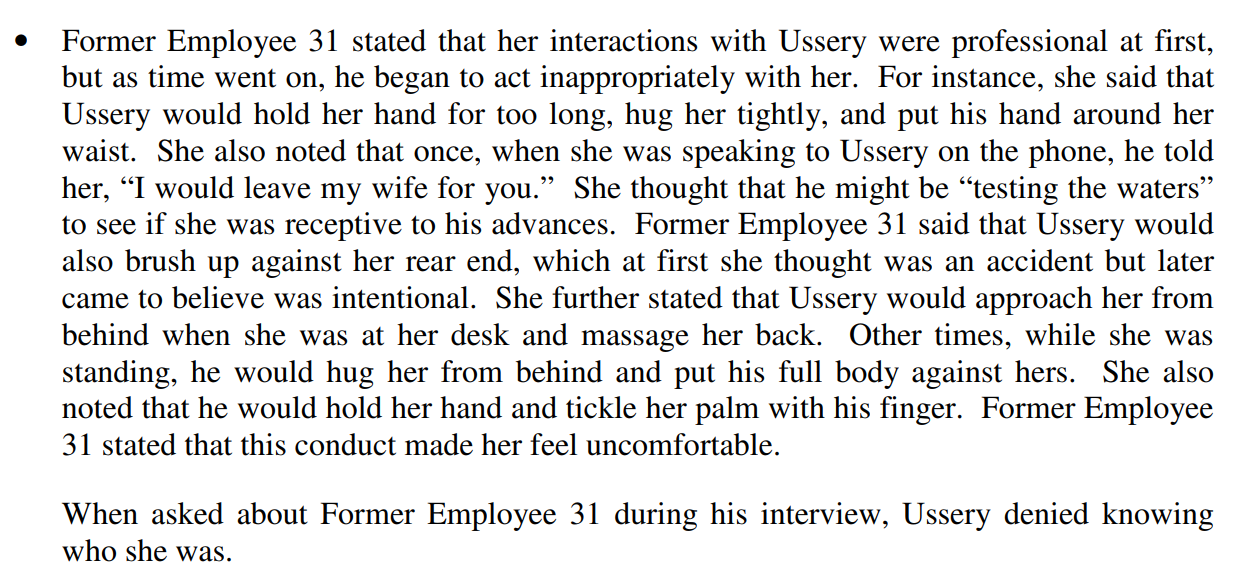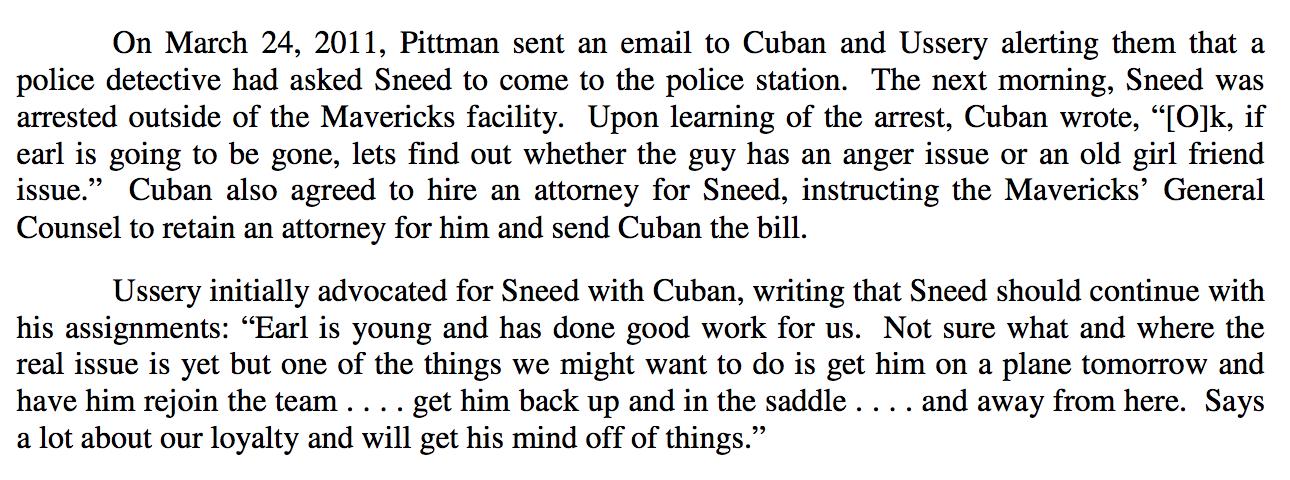The past week has featured several men (and a handful of women) bending over backwards in an attempt dismiss and discredit sexual assault allegations made against Supreme Court nominee Brett Kavanaugh.
If the attack was as bad as she says, wouldn’t she have reported earlier? She’s probably just mixed up — maybe she got him confused with someone else? Even if he did do this, should we be still holding it against him 36 years later?
Accusations like the one made by Dr. Christine Blasey Ford — and now a second woman who went to college with Kavanaugh at Yale — are no stranger to the Washington spin cycle, where it can be tempting to boil the whole saga all down to a game of dirty politics. The stakes are so high, and the hyper-partisanship is almost dizzying.
But it’s important to remember that people from all walks of life go through great lengths to excuse and diminish accusations of sexual assault or domestic violence — not because one party’s control over the Supreme Court is on the line, or over allegiances to the left or the right, but because of our unique inability to center on survivors, even in their own stories.
Two recent investigations in the sports world provide pristine examples of this. In Columbus, Ohio this weekend, Ohio State head football coach Urban Meyer was given a hero’s welcome when he returned the sidelines on Saturday after serving a three-week suspension for mishandling accusations of domestic violence against an assistant coach. And last week in Texas, a full report detailing the culture of sexual harassment and misconduct plaguing the Dallas Mavericks organization was released, following a seven-month investigation that included interviews with 215 witnesses and a review of 1.6 million documents.
Both Meyer and the Mavericks are hoping that they can quickly move the focus away from the recent investigations and onto wins and losses, and if history is an indicator, they will have no trouble succeeding. However, both of these cases — much like Kavanaugh’s — offer textbook cases of how accusations of domestic violence and sexual misconduct become much more about the abuser’s past and potential than the survivor’s present.
Let’s start with the Mavericks. Last February, Sports Illustrated published a story on the organization’s toxic workplace culture, which was substantiated — and then some — by the report released last week.
Naturally, most of the headlines the past few days centered not on the allegations themselves but on the reconciliatory $10 million that team owner Mark Cuban agreed to donate to charities helping women and girls. But the investigation — which concluded that there was “serious workplace misconduct” and “improper or ineffective management” — deserves further scrutiny.
The report found that 15 current and former employees made credible allegations of sexual harassment against Terdema Ussery, who was President and CEO of the Mavericks from 1997 to 2015. Here’s what one woman, who was referred to in the report as Former Employee 31, said about her interactions with Ussery.

Notably, there weren’t any write-ups of sexual harassment in Ussery’s employment file, not even from Former Employee 31. Why might that be? Is Former Employee 31 merely making up her story now that the tide has turned against Ussery? Did 15 other women make up similar stories — at the risk of criminal or civil lawsuits — just to get back at a man who used to have power over their careers?
Or did they not report it because the person responsible for investigating claims of harassment was Buddy Pittman, the head of Human Resources, who just happened to be a close personal friend of Ussery’s.
Not only was Pittman unwelcoming towards allegations made against his friend, he actually went out of his way to bully women into staying silent about Ussery’s behavior, according to the report.
One day, Pittman invited Former Employee 31 into his office, and told her that he had heard that “she had been ‘coming on’ to Ussery by holding his hand and being flirtatious.” From the report:
Pittman then said, “Well that didn’t happen, did it?” He continued, “Because he’s a married man. You know he’s a good Christian man. He would never do that.” Former Employee 31 said that she was overwhelmed that Ussery’s inappropriate conduct was being turned around against her. Pittman then asked Former Employee 31, “That didn’t happen, right?” Former Employee 31 believed that Pittman was protecting Ussery and that Pittman wanted her to say that nothing had happened. And so, in response to his question, she said that “nothing had happened.” Former Employee 31 recounted that she cried during the meeting in Pittman’s office. At the end of the meeting, Pittman hugged her and joked, “Now you’re not going to report me, are you?” Former Employee 31 told us that she was “devastated” by the conversation with Pittman and “did not know what to do.”
That’s right. Former Employee 31 didn’t report Ussery because the head of human resources — the person tasked with protecting employees from abusive or unethical behavior by their coworkers — gaslit her, terrified her, and made it clear that if she did report him, she would be the one punished.
When men at the Mavericks’ front office weren’t going out of their way to scare women into silence, they were making every possible excuse to justify those rare allegations of abusive behavior against their peers that were brought to their attention.
Take the case of ticket salesman Chris Hyde, who regularly looked at pornography and sexually graphic content at work and made sexual advances towards at least seven current and former employees. Hyde’s bosses were repeatedly notified of his abusive and improper behavior, and yet, because he was a good salesman, they kept coming up with excuses for him to stay employed — for 15 whole years.
According to the report, Former Employee 15 alleges that Hyde would occasionally attempt to kiss her and “dog lick [her] face,” and frequently talked about his sexual proclivities in front of her. When she reported this to George Prokos, Hyde’s boss in the sales department, he was dismissive. A very similar thing happened to Former Employee 21. When she reported Hyde’s sexual harassment to Prokos, he told her that she simply didn’t understand the difference between “threatened” and “competitive.”

Hyde’s superiors had already received more than half a dozen reports about his sexual harassment and offensive behavior when they began receiving complaints that he was bringing new female employees on a detour to his apartment while giving them onboarding tours of the arena. However, Hyde tried to justify this behavior by turning it around on the women, and Pittman — who, once again, is the head of human resources — more than bought it.

That last phrase, “if it appears they encouraged the actions in any way,” is incredibly revealing. If there’s even the slightest chance that somewhere along the line a woman could have done something, even accidentally, which could be construed as signaling to a man that she wanted to be taken to his private apartment during work hours, then a man cannot be held responsible for his actions — even if those actions were unequivocally wrong.
This unrelenting urge — to give the men they work closely with the benefit of the doubt above all else — is the common thread in the most disturbing incident detailed in the Mavericks’ investigation, that of former Mavericks.com writer Earl Sneed, who was hired by the Mavericks in 2009.
In January 2011, Sneed assaulted his then-fiance, a Jane Doe. She called 9-1-1 during the fight, and went to the hospital the next day for medical treatment due to a broken wrist. In a Facebook message, Sneed took responsibility for breaking her wrist. Two months later, Jane Doe messaged Cuban and another Mavericks employee to tell them that she had been repeatedly abused by Sneed, and to notify them that a warrant was out for his arrest.
Sneed, of course, reached out to his bosses to proclaim his innocence. And the Mavericks completely rallied around him. Cuban even offered to pay for his legal bills, an absolutely unfathomable offer to any employee in this situation, let alone a low-level employee who has only been with the company full-time for less than a year.

Not to belabor the point, but I do want to make sure we’re all on the same page here: A woman reached out to the Mavericks to alert them that a man in their employ had abused her; she had proof, and he admitted it; and the team’s immediate reaction was to make sure his job and his legal bills were covered.
Sneed ended up pleading guilty to two misdemeanors. He stayed with the Mavericks, obviously. And three years later, he began a relationship with a female coworker, Former Employee 29. One day, during a fight, he reportedly dragged her out of a car and pressed her face against the pavement, leaving her with “multiple injuries, including a knot on her chin, a knot under one of her eyes, bruises where he squeezed her head, and a series of scratches and bruises on her chest and back.”
Former Employee 29 was forced to come in to work the following day, despite her very visible injuries, because it was a game day. She ended up telling her supervisor what Sneed had done. Soon, she met with Pittman, and the Mavericks offered her a severance package to leave the Mavericks. Sneed remained on the payroll. Though Cuban didn’t know about this assault immediately, he ended up fighting for Sneed to stay with the Mavericks once he found out.

This is all incredibly reminiscent of what happened with Urban Meyer, who was “suspended” for his mishandling of domestic violence allegations against his former assistant head coach, Zack Smith.
Meyer knew that Smith’s ex-wife, Courtney Smith, had called 9-1-1 on Smith back in 2009 for throwing her against a wall while she was pregnant. He knew that the police were investigating Smith for domestic violence in 2015. And yet time and time again he made excuses for Smith and stuck by him. He never checked on Courtney, or made her safety a priority; it was all about protecting his friend and assistant. And, while Meyer has said publicly that he has regrets, he also continues to defend every decision he made, and is upset that the media isn’t focusing more on the ways he respects women.
Now look, I am not implying that all of these cases are exactly the same, or that there is a silver bullet for dealing with all of them. Rape, domestic violence, sexual assault, and sexual harassment are all different shades of awful on the #MeToo spectrum, and in order to push the movement forward, nuance has to be our friend, not our enemy.
But the one thing that ties these incidents together? When survivors don’t immediately report domestic or sexual abuse, it’s not because they’re weak or lying. It’s because they’re afraid that nobody will care, and that they will be publicly bearing their trauma for no reason. And, too often, they’re right.
As more accusations surface about Kavanuagh, the question shouldn’t be, “Why didn’t this survivor come forward sooner?” It should always be, “What can we do, as a society, to make sure that survivors feel comfortable enough to come forward in the future? How to we stop the cycle that encourages victims to suffer alone and in silence?”
Given all of the recent evidence, it’s a small miracle that any survivor is comfortable coming forward in any capacity, at any level of society. When they do, we need to learn to do a lot less questioning, and a lot more listening.

